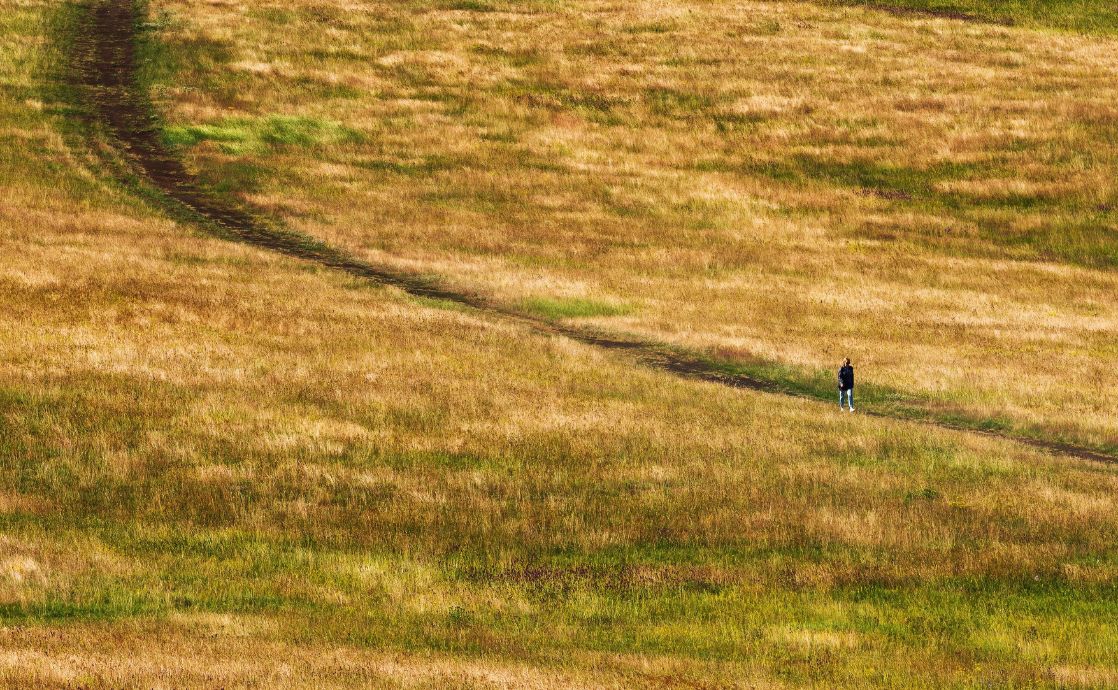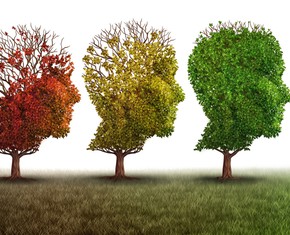The views expressed in our content reflect individual perspectives and do not represent the authoritative views of the Baha'i Faith.
If you’ve braved the storm of material life and made the choice to follow a spiritual path, you might wonder what you can best do to help yourself progress on that joyful journey.
Of course, we’re all aware that the spiritual path, if trodden well, will take us to higher levels of awareness, understanding, and inner development. But what course of action can enable each person to continue to grow spiritually — our own actions and efforts, or seeking help and grace from a higher power?
For thousands of years, spiritual seekers have asked this question. Some traditions place more emphasis on the role of action and individual effort in spiritual transformation, while others stress that only through the aid and assistance of a higher power can a person truly transform.
What do the Baha’i teachings say about these divergent schools of thought? They equally abound with statements stressing the importance of effort and grace.
RELATED: 6 Tips for Your Daily Prayers
As with many cases, the Baha’i teachings take the “Middle Way” between these two polarities — but let’s look in more detail at how Baha’is try to strike the fine balance between action and asking the Creator for assistance.
In “The Seven Valleys,” Baha’u’llah, the prophet and founder of the Baha’i Faith, uses a traditional seven-stage Sufi framework to elucidate the path of spiritual transformation. He explained that the preliminary step of spiritual growth requires inner purification: “It is incumbent upon these servants to cleanse the heart, which is the wellspring of divine treasures, of every marking …”
Here Baha’u’llah calls on every spiritual seeker to cleanse their own heart, implying the use of their own will to do so. In another passage, he stated it even more explicitly:
There can be no doubt whatever that, in consequence of the efforts which every man may consciously exert and as a result of the exertion of his own spiritual faculties, this mirror can be so cleansed from the dross of earthly defilements …
This shows the importance of taking responsibility for our own inner growth and purification. But what does inner purification mean? From a Baha’i perspective, it suggests thinking and acting for ourselves and embodying the perfections of God — the array of heavenly virtues such as love, kindness, and honesty. When our minds, hearts and actions center themselves around these qualities, we’re on the way to living a purer life.
Our own purification is largely in our own hands, and much of the task of spiritual growth consists in doing our best to purify ourselves. This also enables us to live a happier and more peaceful life. If we love and help others, we will feel joy. If we’re detached from the material world, we will not be disappointed when things don’t go according to plan. In a word, virtue and purity make for a more pleasant existence in this, the “first life.”
But bear in mind: this stage just represents the very beginning of spiritual growth. As Baha’u’llah illustrates in “The Seven Valleys,” we have loftier levels to reach. So, how do we grow further and go even higher?
As Baha’u’llah wrote, the higher stations of spiritual growth are attained not through effort or sheer force of will, but through the grace of God:
… if, by the help of the Creator, he findeth on this journey a trace of the traceless Friend, and inhaleth the fragrance of the long-lost Joseph from the heavenly herald, he shall straightway step into the Valley of Love and be consumed in the fire of love.
Here, we see that through God’s help, the seeker reaches a higher spiritual station, not solely through their own efforts. These efforts at purification provide the foundations of spirituality — but higher states of being are bestowed by God. Abdu’l-Baha, Baha’u’llah’s son and successor, made a similar point in his writings:
… love of God and spiritual attraction do cleanse and purify the human heart and dress and adorn it with the spotless garment of holiness; and once the heart is entirely attached to the Lord, and bound over to [Baha’u’llah] the Blessed Perfection, then will the grace of God be revealed.
RELATED: How Do We Return God’s Love?
This again stresses the role of God’s grace, but it also points out that it is not only through effort that we purify ourselves — our love for and attraction to God also purifies us. This suggests that our efforts at purification are aided through devotion to God; and that we are not alone in our efforts. This also illustrates a difference to other forms of self-improvement that solely stress the role of effort.
This seems clear in the Baha’i writings: both effort and grace play their role in spiritual transformation. We first need to put in the effort to purify our souls, which is also aided by our attraction and devotion to God, but then, at some point on our growing spiritual path, God will lift us to a higher level. So, in answer to the question about trying to transform ourselves or supplicating God to transform us, the Baha’i teachings recommend both, in harmony and in tandem.
















Comments
Sign in or create an account
Continue with Googleor